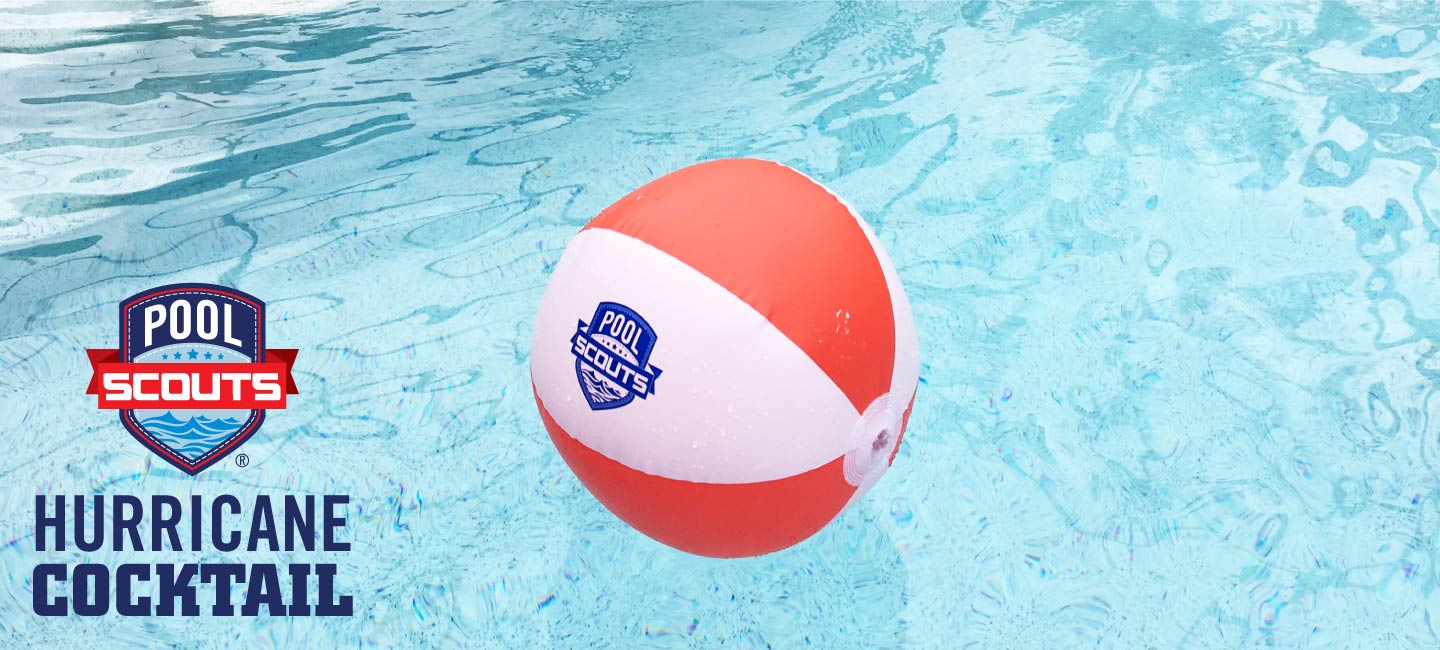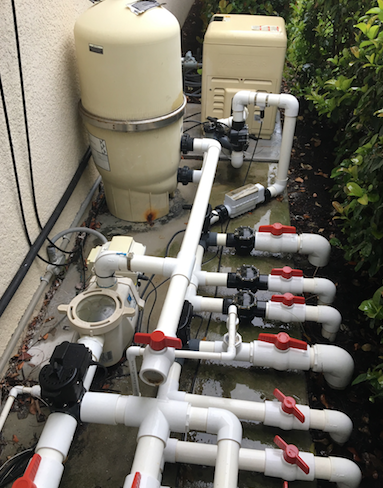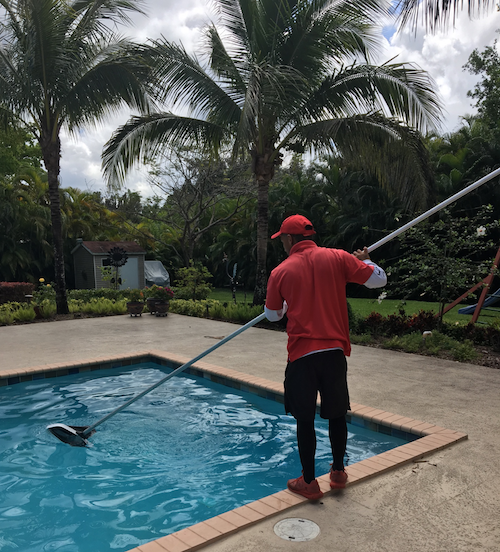
Tips To Keep You Relaxed During Hurricane Season
Tips To Keep You Relaxed During Hurricane Season
Every fall in conjunction with the falling leaves comes hurricane season and it can be stressful. In Virginia Beach (where the Pool Scouts headquarters is located) we shut down schools in anticipation of an impending storm that never hit, literally, not one drop of rain! But the threat is real and there is more you can do, beyond mixing up a Hurricane Cocktail, to sleep with ease this time of year. And while we would rather talk about the ingredients of the season’s namesake cocktail (rum, lemon juice and passion fruit syrup in case you were wondering) we are tackling more important topics that involve hurricanes and our swimming pools.
You’ve invested in your home and a great outdoor space to entertain so how do you protect it from natural disasters?
Five Key Things To Do Before The Storm
 Do not drain the pool. Hydrostatic pressure under your pool can cause havoc during a storm. It is best to allow the pool to overflow as opposed to potentially allowing the pool to pop. If the pool is plumbed with an auto-drain, ensure it is not clogged. Also if the pool has an auto-fill or water leveler, please turn that off pre-storm.
Do not drain the pool. Hydrostatic pressure under your pool can cause havoc during a storm. It is best to allow the pool to overflow as opposed to potentially allowing the pool to pop. If the pool is plumbed with an auto-drain, ensure it is not clogged. Also if the pool has an auto-fill or water leveler, please turn that off pre-storm.- Add super chlorinate. Add extra shock to help the pool fight any pollutants that might contaminate the water. Remember to not swim for 24 hours after the shock treatment.
- Secure loose items around the pool area. These can become projectiles during the wind portion of any storm and cause further damage to the pool surface or surrounding area. Strap down any items too large for storage. Also remember to store any chemicals used in your pool care safely, high and dry.
- Turn the power off. Be sure to turn off power at the electrical panel leading to pool equipment and lighting. No need to risk the mix of water and electricity during the storm. The equipment is more likely to fail if operating in saturated conditions and potential surges in the power grid could cause damage that would be costly.
- Document with pictures and video the pre-storm swimming pool and equipment area. This will help with any potential insurance claims. You will also now have a game plan to follow for future storm preparedness.
Preparing Beyond the Pool Area
Besides the care of your swimming pool, there are other safety measures to consider during the event of a hurricane or other tropical storm. The following resources will help keep you, your family, and your home safe ahead of the storm.
- The National Hurricane Center of the National Weather Service has helpful tips for ensuring preparedness for a hurricane’s arrival.
- The American Red Cross has great information on disaster alerts and preparation.
- Ready.gov has information on hurricane preparation, as well as information on preparing for other natural disasters.
- The National Weather Service is one of the best resources to get up-to-date information on hurricanes that are headed your way and those which are still forming.
Post Storm Assessment and Clean Up
 After the storm has passed and your property is safe to access, follow these steps assess damage and begin to clean up:
After the storm has passed and your property is safe to access, follow these steps assess damage and begin to clean up:
Remove all debris from the house, patio, and swimming pool. Be sure to dispose with the local standards. Often there could be delays in trash removal from the property. Plan ahead for weeks of disposal.
Inspect the pool surface, patio, plumbing, and equipment. Any cracks should be inspected before operating equipment. Try to reach out to your pool technician for any repairs needed. Remember these techs generally are your neighbors and are experiencing the same potential hardships you are.
Test water chemistry and plan on testing frequently over the next few weeks. Adjust the chemistry after step 4. If unable to run equipment, at least treat the water with liquid chlorine “bleach” or chlorine tablets in a floater. This will help keep the water from becoming stagnant and infested with bugs. Run filter equipment and keep filter clean as it will most likely capture debris quickly. Watch and listen to your equipment to ensure all components have returned to their normal operation.
Along with some of these basic tips, be sure to reach out to your local Pool Scouts or other pool service provider, so they can help get your pool back on track. Pool Scouts can assess any damage, remove debris and get your pool swim ready in no time! Click here to find a location near you.
